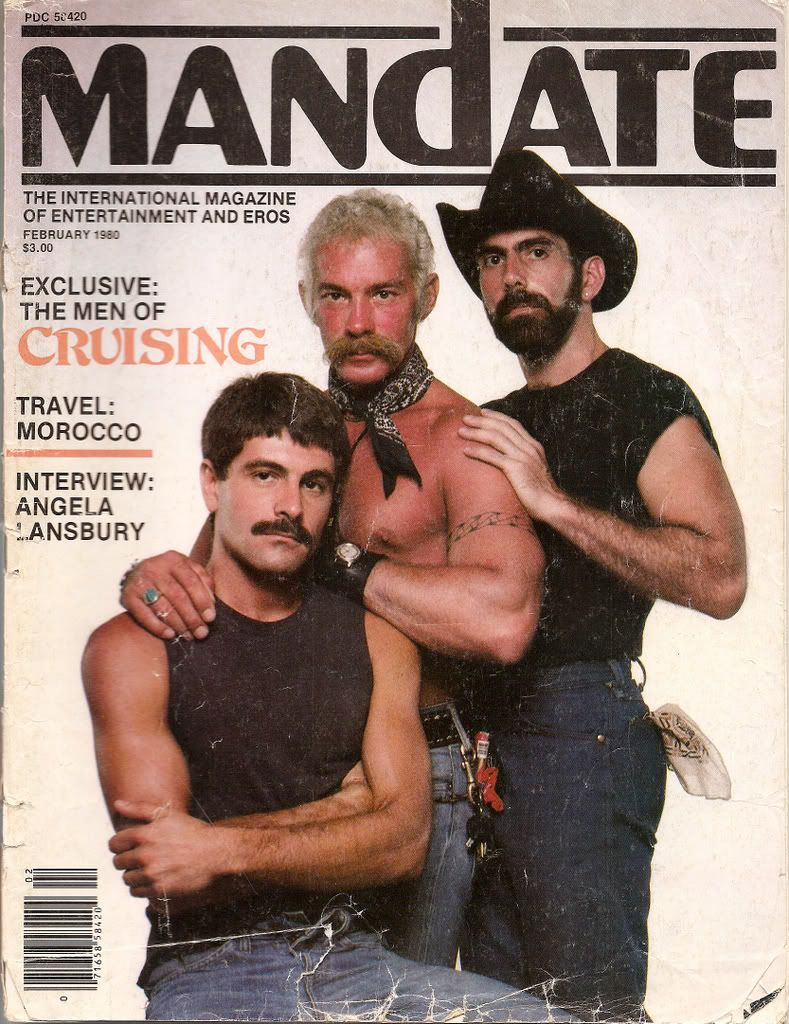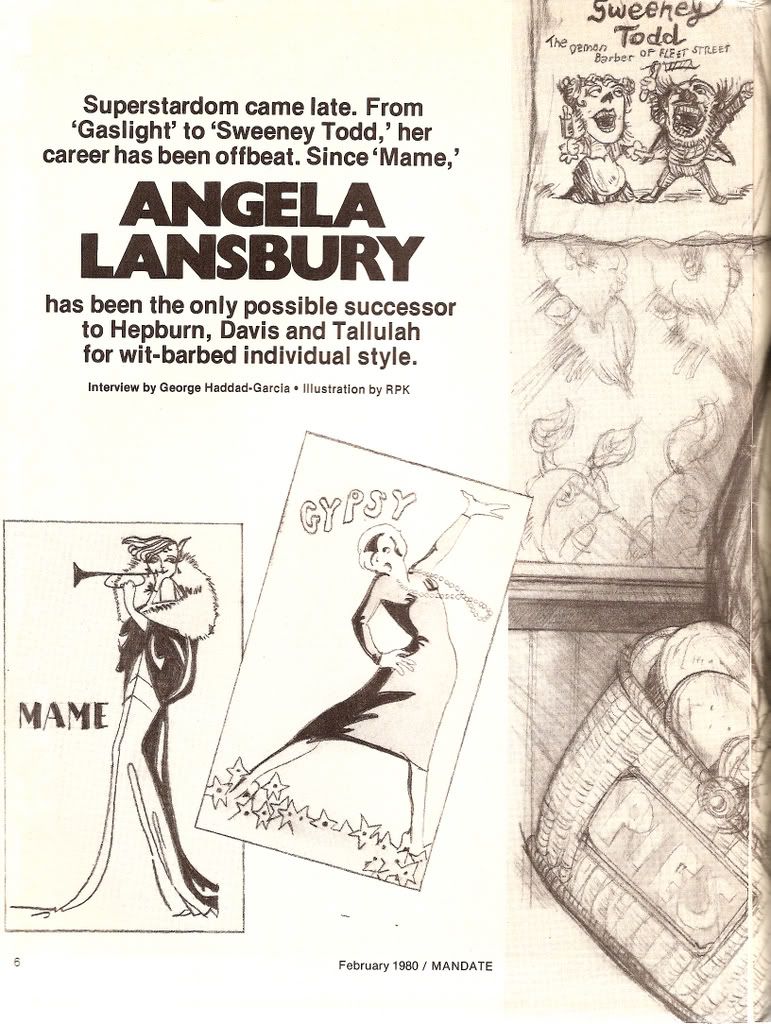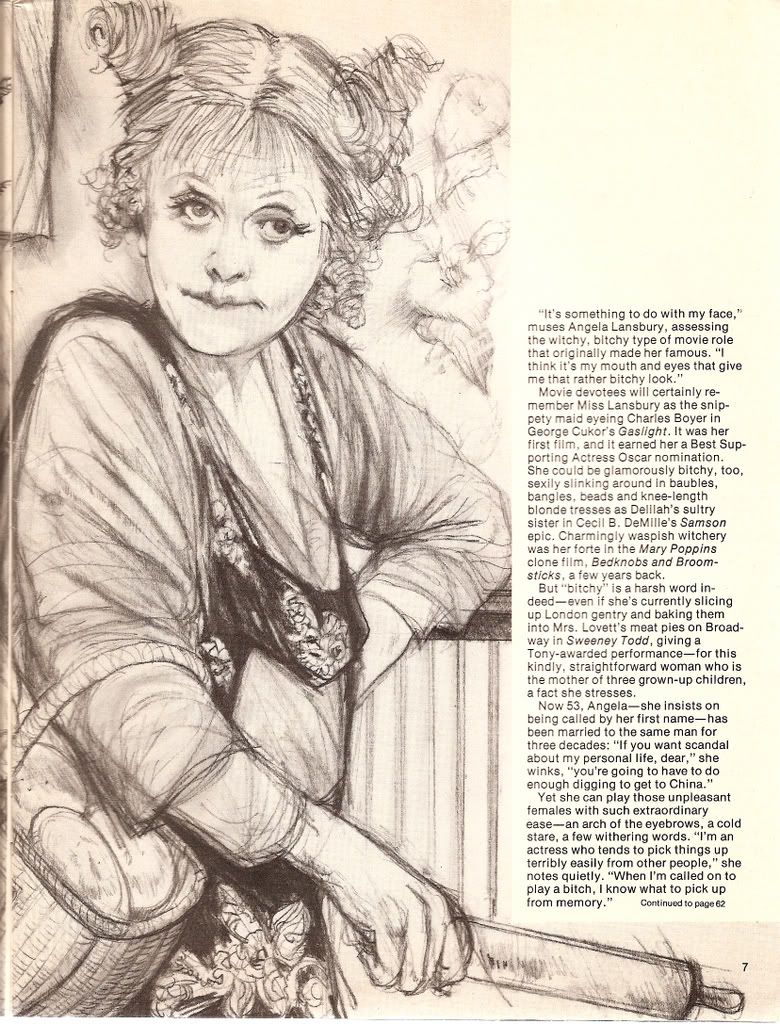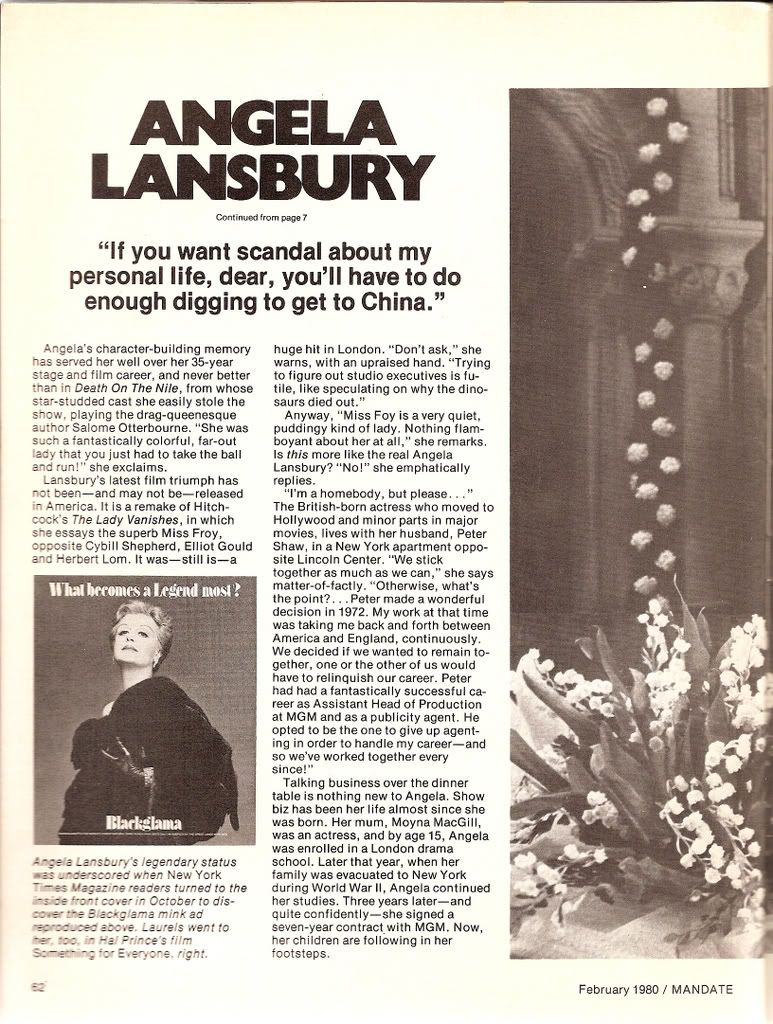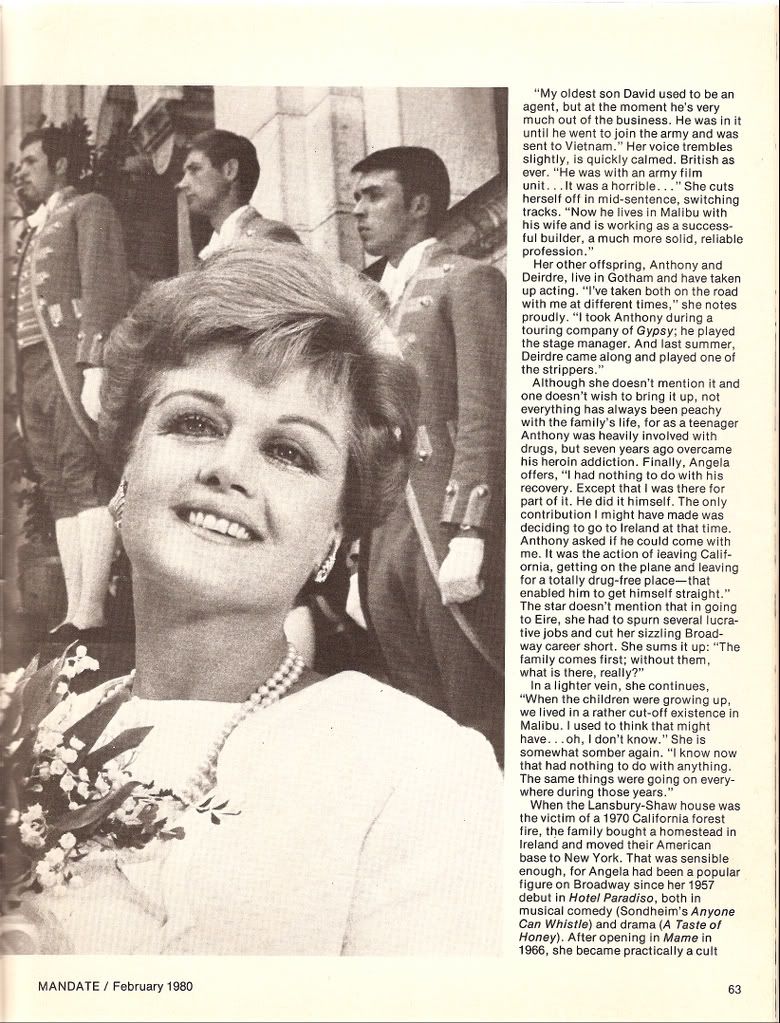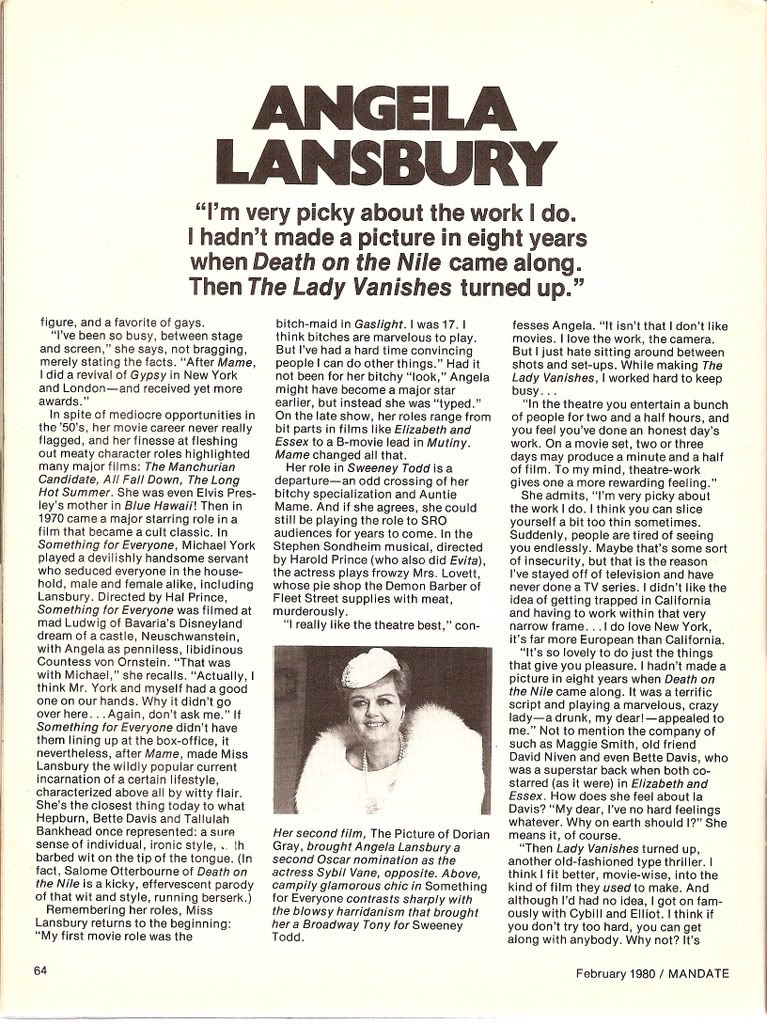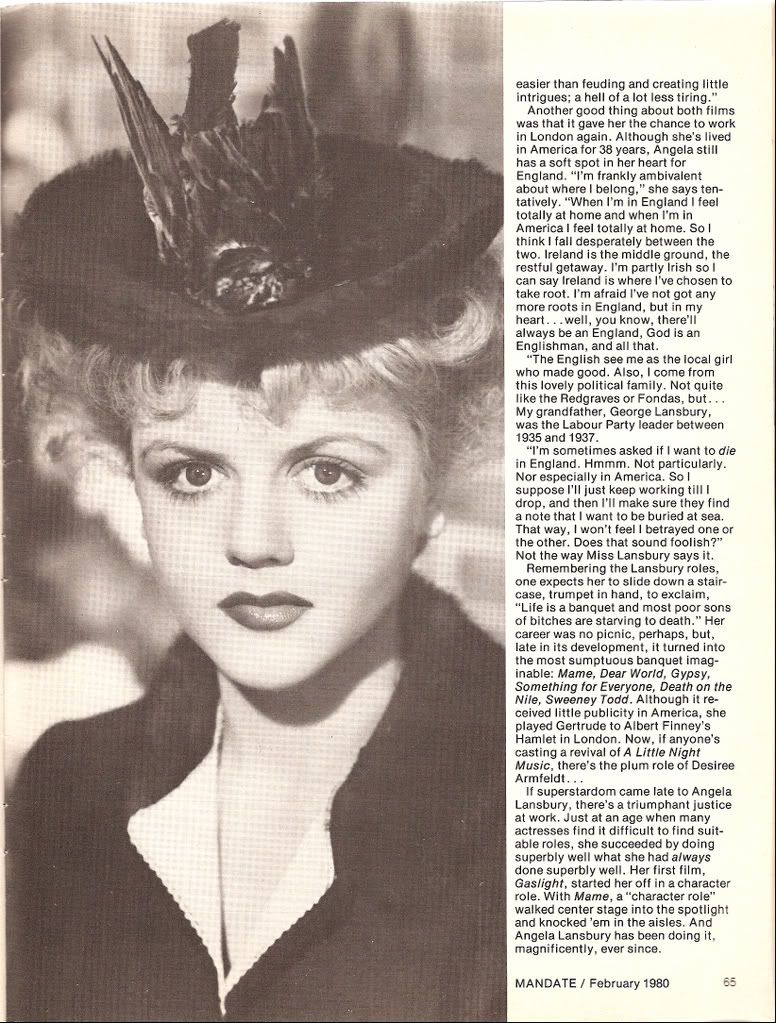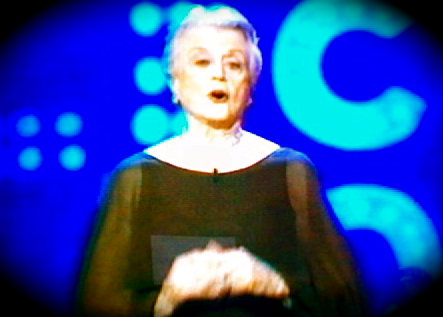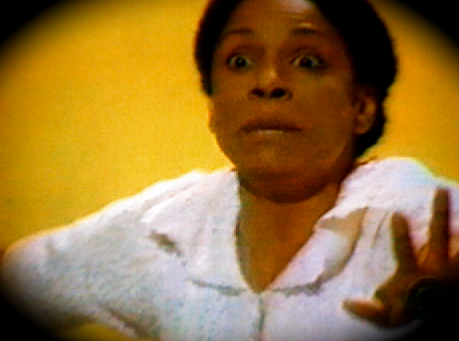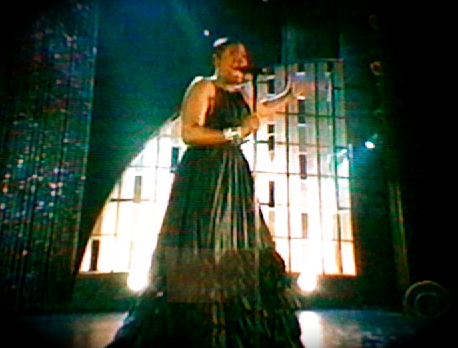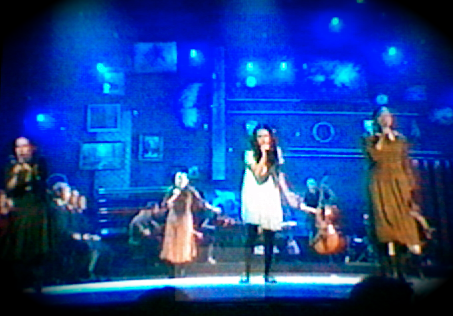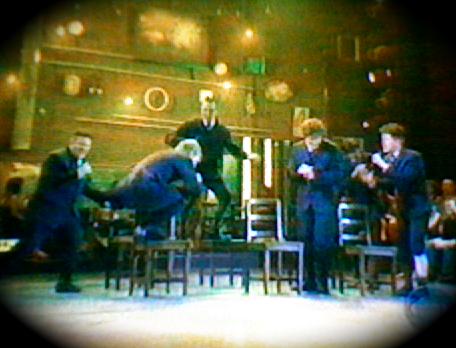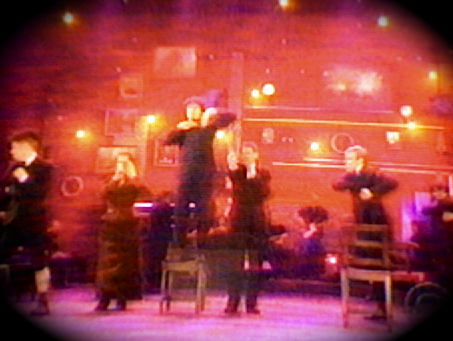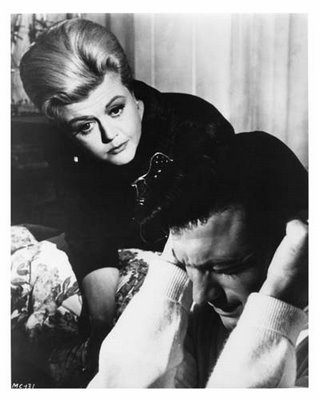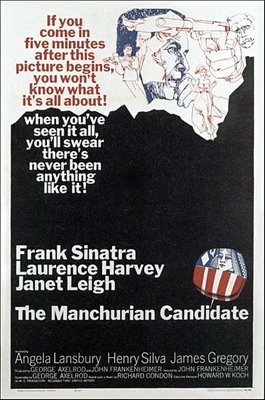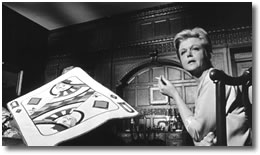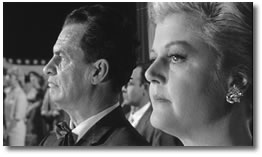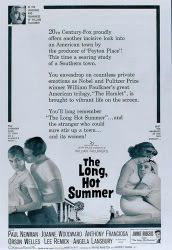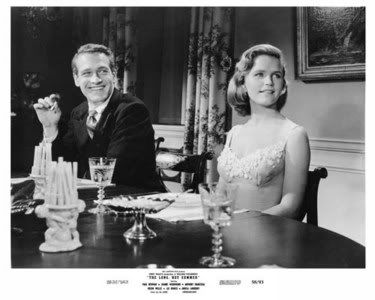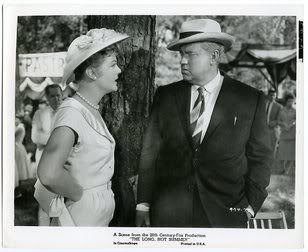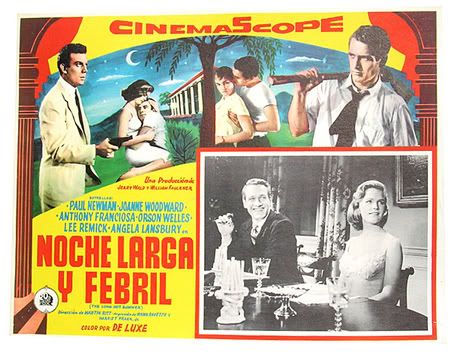 More than any of the other acting categories, the Academy seems to, at times, utilize the Supporting Actress category to acknowledge what some might call "star quality." A nomination can serve, especially for an early career performer, as a kind of high-pressure post-it note from the industry, a curiously public "note to self" that "this girl, she's got something special." Indeed, it's among the more fascinating aspects of my Supporting Actress Sundays Project whenever I have the opportunity to consider such a "pink-flagged" performance. This week, just such an early career Supporting Actress nomination invites us to consider the "something special" that is...
More than any of the other acting categories, the Academy seems to, at times, utilize the Supporting Actress category to acknowledge what some might call "star quality." A nomination can serve, especially for an early career performer, as a kind of high-pressure post-it note from the industry, a curiously public "note to self" that "this girl, she's got something special." Indeed, it's among the more fascinating aspects of my Supporting Actress Sundays Project whenever I have the opportunity to consider such a "pink-flagged" performance. This week, just such an early career Supporting Actress nomination invites us to consider the "something special" that is...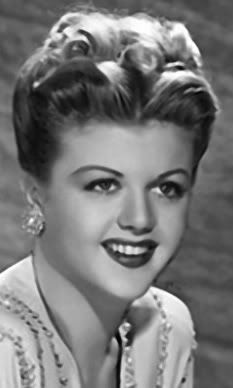
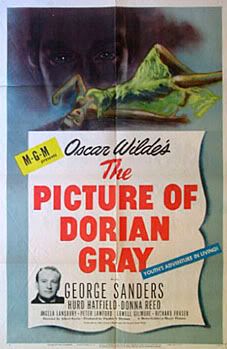
...Angela Lansbury in The Picture of Dorian Gray (1945)
approximately 14 minutes and 32 seconds
9 scenes
roughly 13% of film's total running time
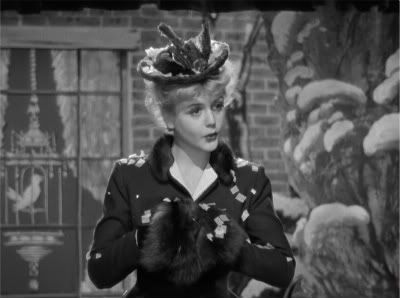 As Lansbury's Sibyl sings a song about a "Little Yellow Bird," Dorian Gray becomes enraptured with the young woman.
As Lansbury's Sibyl sings a song about a "Little Yellow Bird," Dorian Gray becomes enraptured with the young woman.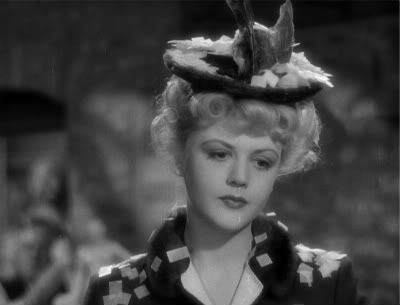 At the same time, Lansbury's Sibyl -- who, we are told, is a "proud" girl and inclined to brush off the devoted attention of even well-heeled admirers -- seems uncharacteristically drawn to the elegant stranger, a pensive curiosity creeping from behind the easy grin of her performance mask.
At the same time, Lansbury's Sibyl -- who, we are told, is a "proud" girl and inclined to brush off the devoted attention of even well-heeled admirers -- seems uncharacteristically drawn to the elegant stranger, a pensive curiosity creeping from behind the easy grin of her performance mask.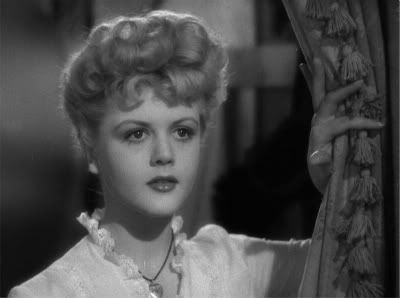 Several weeks pass, during which time Dorian Gray becomes an ever more frequent visitor to the the Two Turtles, until -- finally -- he arranges to meet the young woman. When Dorian arrives backstage, Lansbury's Sibyl meets with him willingly, even enthusiastically. In Lansbury's portrayal, Sibyl Vane is neither a golddigger nor an aspiring trophy wife, but a young woman from tough circumstances who craves the kind of cultural mentorship that Dorian seems to promise.
Several weeks pass, during which time Dorian Gray becomes an ever more frequent visitor to the the Two Turtles, until -- finally -- he arranges to meet the young woman. When Dorian arrives backstage, Lansbury's Sibyl meets with him willingly, even enthusiastically. In Lansbury's portrayal, Sibyl Vane is neither a golddigger nor an aspiring trophy wife, but a young woman from tough circumstances who craves the kind of cultural mentorship that Dorian seems to promise.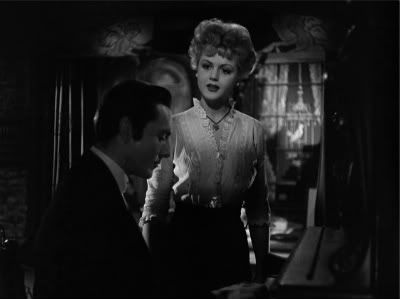 Lansbury's Sibyl is thrilled to hear Dorian play the beautiful music of Chopin and to learn of the many beautiful objects that Dorian owns. And, through it all, Lansbury's Sibyl is quietly giddy at the realization that such a refined man as Dorian might think her beautiful too. Here is a young woman from a tough neighborhood, clearly adept at fending off men with greedy intentions, yet her encounter with Dorian Gray is something different -- for the first time she is being courted, and it's thrilling.
Lansbury's Sibyl is thrilled to hear Dorian play the beautiful music of Chopin and to learn of the many beautiful objects that Dorian owns. And, through it all, Lansbury's Sibyl is quietly giddy at the realization that such a refined man as Dorian might think her beautiful too. Here is a young woman from a tough neighborhood, clearly adept at fending off men with greedy intentions, yet her encounter with Dorian Gray is something different -- for the first time she is being courted, and it's thrilling.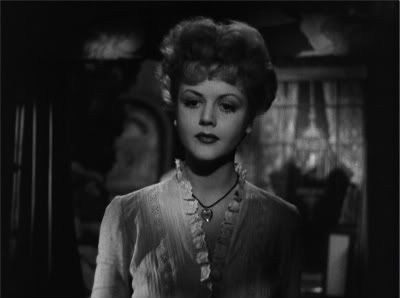 Lansbury, in her late teens at the time of this performance, holds the tension of Sibyl Vane's dilemma artfully. Lansbury conveys Sibyl's confidence and maturity with preternatural ease, yet she signals Sibyl's youth, inexperience and vulnerability in haunting ways.
Lansbury, in her late teens at the time of this performance, holds the tension of Sibyl Vane's dilemma artfully. Lansbury conveys Sibyl's confidence and maturity with preternatural ease, yet she signals Sibyl's youth, inexperience and vulnerability in haunting ways.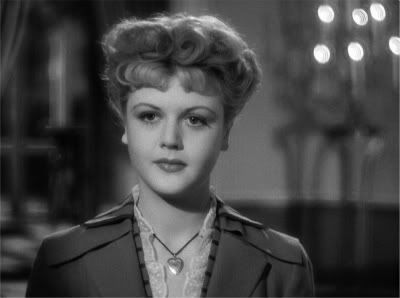 Perhaps my favorite moment in Lansbury's brief performance comes when Sibyl Vane has finally arrived to Dorian Gray's parlor. As she moves about the room, she promises to remember everything about this moment. It's a sweet, awkward, adolescent declamation -- one which underscores how this worldly, streetwise young woman has been struck "naïve" by Dorian Gray's overwhelming sophistication. This reminder of Sibyl Vane's intrinsic innocence proves essential in the moments that follow. Goaded by the awful Lord Wotton (George Sanders, doing his usual self-loathing/vicious queen shtick), Dorian Gray has determined to toy cruelly with Sibyl Vane's affections.
Perhaps my favorite moment in Lansbury's brief performance comes when Sibyl Vane has finally arrived to Dorian Gray's parlor. As she moves about the room, she promises to remember everything about this moment. It's a sweet, awkward, adolescent declamation -- one which underscores how this worldly, streetwise young woman has been struck "naïve" by Dorian Gray's overwhelming sophistication. This reminder of Sibyl Vane's intrinsic innocence proves essential in the moments that follow. Goaded by the awful Lord Wotton (George Sanders, doing his usual self-loathing/vicious queen shtick), Dorian Gray has determined to toy cruelly with Sibyl Vane's affections.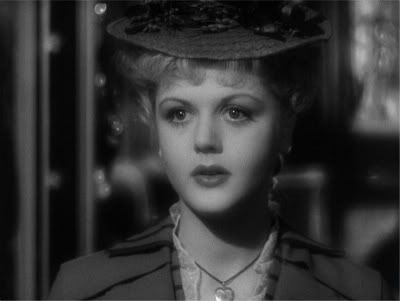 As Sibyl prepares to leave Dorian Gray for the evening, he makes it clear that he expects her to stay and -- the implication is -- sleep with him. Lansbury's Sibyl is thunderstruck by his expectation.
As Sibyl prepares to leave Dorian Gray for the evening, he makes it clear that he expects her to stay and -- the implication is -- sleep with him. Lansbury's Sibyl is thunderstruck by his expectation.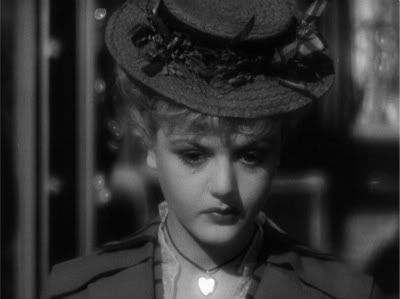 Humiliated and heartbroken that Dorian Gray only wants what every man wants of her, Lansbury's Sibyl moves to leave. As she does, Dorian calls after her with a set of hollow accusations about maturity and conventionality. For reasons that are not altogether clear -- has Dorian pushed Sibyl's buttons? or is she yet under the mysterious spell of that weird Egyptian cat statue? -- Lansbury's Sibyl returns, offering herself to him in supplicant submission. This being 1945, and thus the period in which the Production Code was at the height of its influence, we don't really see what comes next. Though we can guess. Dorian Gray sits at his dressing table, penning a letter which we next see in Sibyl's hand. In the letter, Dorian discards Sibyl as beneath his ideals of her. To anchor the humiliation further, Dorian encloses cash, in very large bills, thus affirming Dorian's assessment of the nature of their dalliance.
Humiliated and heartbroken that Dorian Gray only wants what every man wants of her, Lansbury's Sibyl moves to leave. As she does, Dorian calls after her with a set of hollow accusations about maturity and conventionality. For reasons that are not altogether clear -- has Dorian pushed Sibyl's buttons? or is she yet under the mysterious spell of that weird Egyptian cat statue? -- Lansbury's Sibyl returns, offering herself to him in supplicant submission. This being 1945, and thus the period in which the Production Code was at the height of its influence, we don't really see what comes next. Though we can guess. Dorian Gray sits at his dressing table, penning a letter which we next see in Sibyl's hand. In the letter, Dorian discards Sibyl as beneath his ideals of her. To anchor the humiliation further, Dorian encloses cash, in very large bills, thus affirming Dorian's assessment of the nature of their dalliance.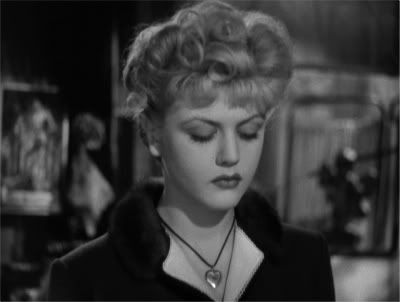 Lansbury's Sibyl grimly absorbs this information, her usually expressive features implacable as stone.
Lansbury's Sibyl grimly absorbs this information, her usually expressive features implacable as stone.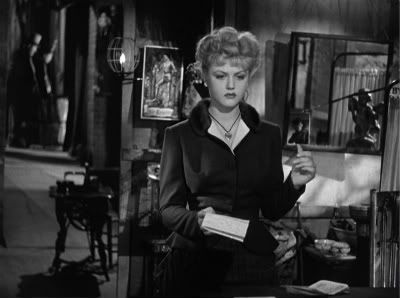 We don't see Lansbury's Sibyl again. We only hear news of her suicide, the implicit result of her devastation by Dorian. Yet Sibyl's presence haunts the film, as the pivotal moment in which Dorian Gray's self-interest turned cruel. Indeed, Dorian Gray's devastation of Sibyl Vane seems to be (at least in the logic of this retelling of the Wilde story) what sets Dorian on his own path toward self-destruction.
We don't see Lansbury's Sibyl again. We only hear news of her suicide, the implicit result of her devastation by Dorian. Yet Sibyl's presence haunts the film, as the pivotal moment in which Dorian Gray's self-interest turned cruel. Indeed, Dorian Gray's devastation of Sibyl Vane seems to be (at least in the logic of this retelling of the Wilde story) what sets Dorian on his own path toward self-destruction.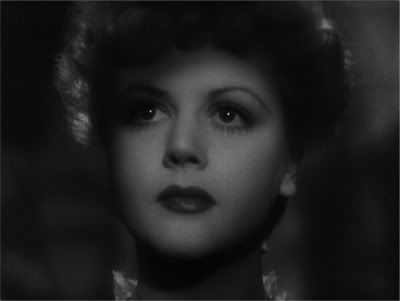 The film proffers Lansbury's Sibyl Vane as the first really good thing to happen to Dorian Gray. She also embodies his first truly bad deed. And Lansbury humanizes Sibyl with a kindness and a warmth that infuses the film. While not necessarily a great performance, Angela Lansbury is memorably effective as the tragically doomed Sibyl Vane, and her presence calibrates the entire film with a necessary humanity it might otherwise lack.
The film proffers Lansbury's Sibyl Vane as the first really good thing to happen to Dorian Gray. She also embodies his first truly bad deed. And Lansbury humanizes Sibyl with a kindness and a warmth that infuses the film. While not necessarily a great performance, Angela Lansbury is memorably effective as the tragically doomed Sibyl Vane, and her presence calibrates the entire film with a necessary humanity it might otherwise lack.

